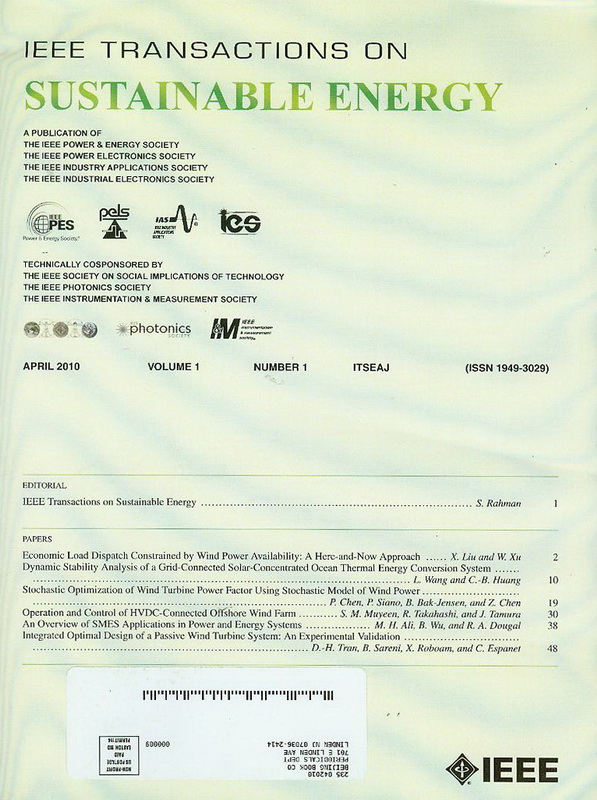Customized Mean Field Game Method of Virtual Power Plant for Real-Time Peak Regulation
IF 10
1区 工程技术
Q1 ENERGY & FUELS
引用次数: 0
Abstract
This paper proposes a customized incentive compatible mean field game (MFG) method for virtual power plant (VPP) with a large number of self-interest heterogeneous distributed energy resources (DERs) to participate in the real-time peak regulation. Firstly, an optimal chance-constrained peak-regulation bidding model of VPP considering the stochastic power flexibility is formulated, where inscribed pyramid approximation method is utilized to form a compact and concise dispatch region. Secondly, a customized MFG method with dynamic granulation division is proposed for encouraging very large-scale DERs to spontaneously respond to the peak regulation instructions from VPP while achieving dynamic allocation of peak-regulation revenue. Brouwer fixed-point theorem and contraction mapping theorem are used to prove the existence and uniqueness of the mean field equilibrium (MFE) of the formulated MFG, and ϵ-Nash property of MFE is validated based on the Lipschitz continuity condition. Furthermore, an accelerated decentralized solution algorithm is developed to rapidly search MFE, exhibiting good scalability. Comparative studies have validated the superiority of the proposed methodology on incentive compatibility and decomposition efficiency of the VPP's peak-regulation instructions.面向实时调峰的虚拟电厂自定义平均场博弈方法
针对具有大量自利异构分布式能源(der)参与实时调峰的虚拟电厂(VPP),提出了一种定制化激励兼容平均场博弈(MFG)方法。首先,建立了考虑随机电力灵活性的VPP最优机会约束调峰竞价模型,利用刻金字塔逼近法形成紧凑简洁的调度区域;其次,在实现调峰收益动态分配的同时,提出了一种动态分粒的定制MFG方法,鼓励超大规模der自发响应VPP的调峰指令。利用browwer不动点定理和收缩映射定理证明了所构造的平均场平衡的存在唯一性,并基于Lipschitz连续性条件验证了平均场平衡的ϵ-Nash性质。在此基础上,提出了一种快速搜索MFE的加速分散求解算法,具有良好的可扩展性。通过对比研究,验证了所提方法在VPP调峰指令激励兼容性和分解效率方面的优越性。
本文章由计算机程序翻译,如有差异,请以英文原文为准。
求助全文
约1分钟内获得全文
求助全文
来源期刊

IEEE Transactions on Sustainable Energy
ENERGY & FUELS-ENGINEERING, ELECTRICAL & ELECTRONIC
CiteScore
21.40
自引率
5.70%
发文量
215
审稿时长
5 months
期刊介绍:
The IEEE Transactions on Sustainable Energy serves as a pivotal platform for sharing groundbreaking research findings on sustainable energy systems, with a focus on their seamless integration into power transmission and/or distribution grids. The journal showcases original research spanning the design, implementation, grid-integration, and control of sustainable energy technologies and systems. Additionally, the Transactions warmly welcomes manuscripts addressing the design, implementation, and evaluation of power systems influenced by sustainable energy systems and devices.
 求助内容:
求助内容: 应助结果提醒方式:
应助结果提醒方式:


